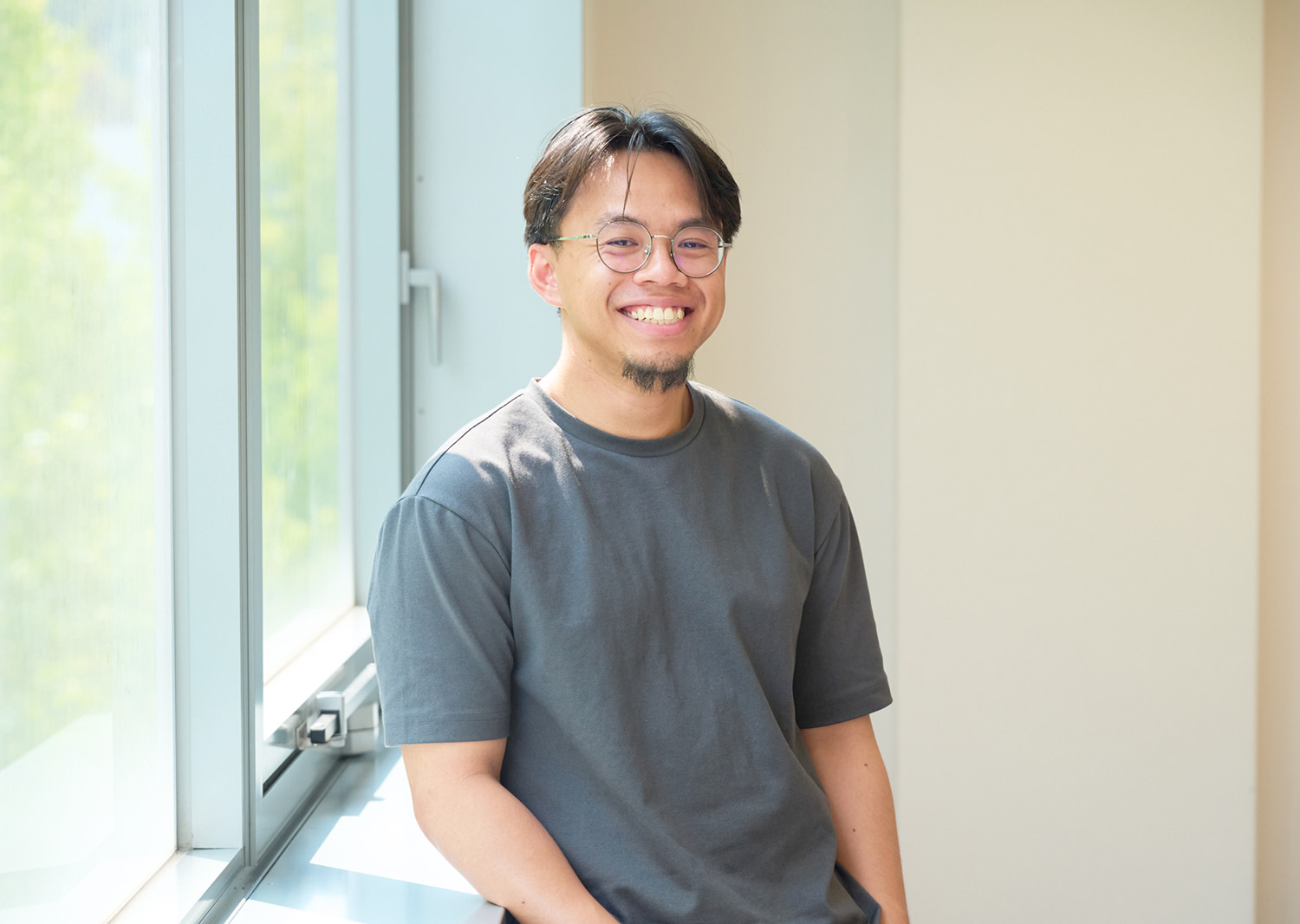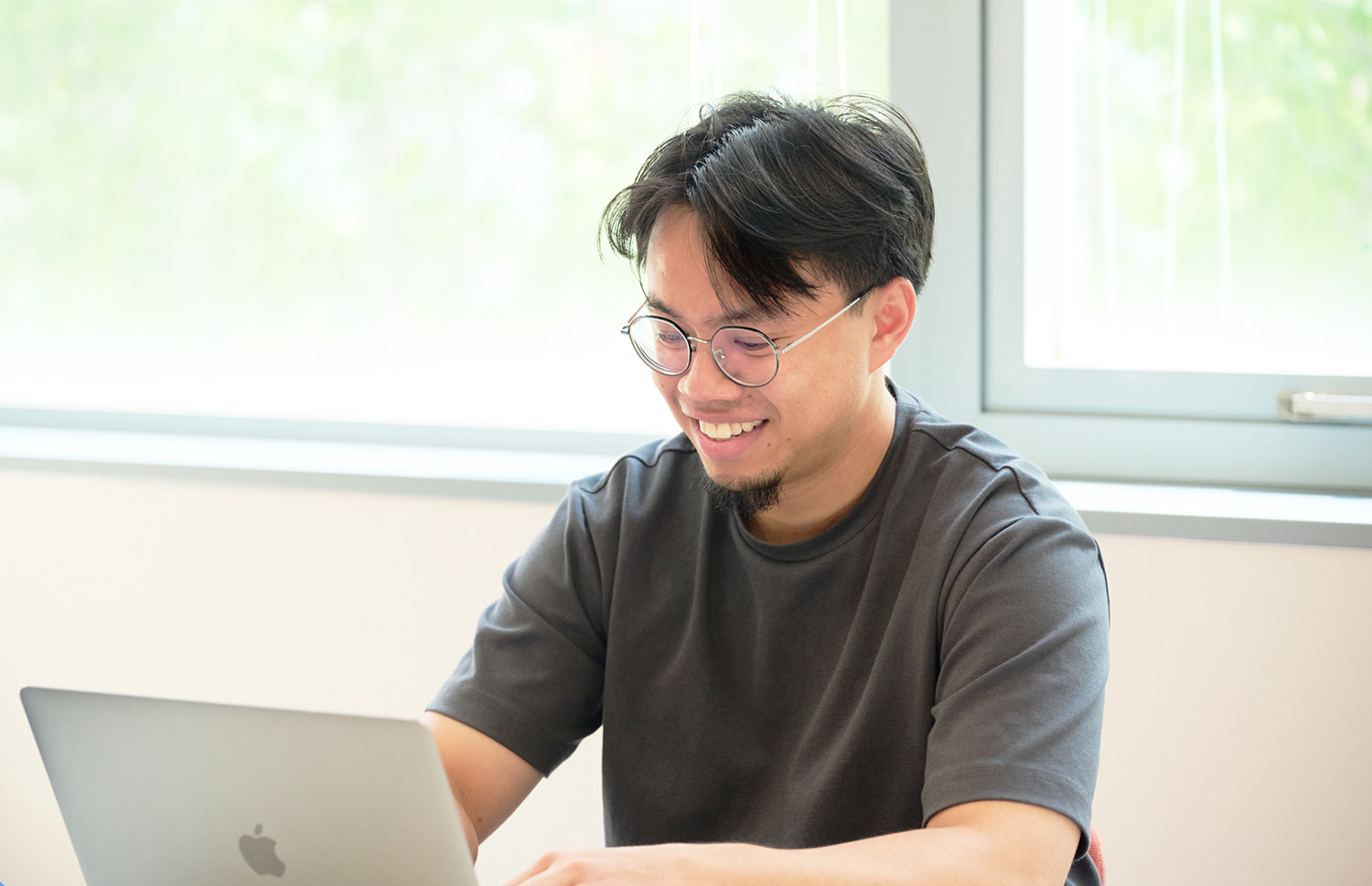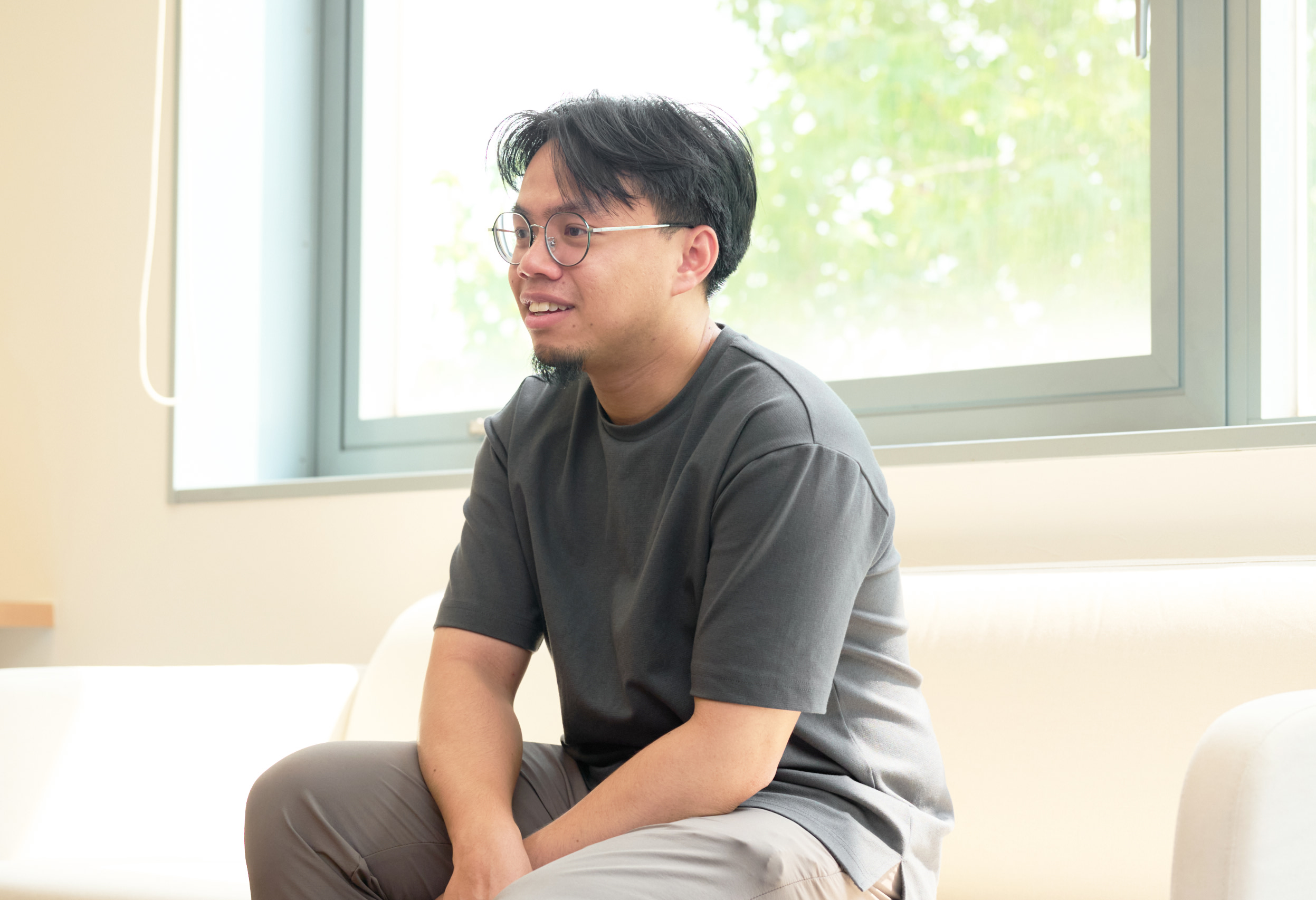あなたの研究テーマについて教えてください。What is your research theme?

Nowadays, robots are increasingly becoming part of our daily lives, and the physical boundaries between humans and robots are becoming thinner. In light of this, several factors require attention, such as safety in interaction, collaborative work efficiency, and natural communication. My research focuses on the physical interaction between humans and robots, specifically on the robot-to-human object handover task when the human is occupied. In this work, I proposed a novel approach that uses vibrotactile cues to convey the robot’s intentions through the human tactile modality. This method improves human–robot interaction speed and reduces mental workload compared to relying solely on visual cues. However, presenting contextual cues via tactile feedback is very challenging, as human responses to such cues can vary. Therefore, in my current study, I am developing a framework that learns how humans respond to vibrotactile cues and uses this knowledge to enhance physical interaction. This framework enables the robot to predict human behavior in response to its vibrotactile signals. I believe that with this technology, we can significantly improve efficiency in collaborative work between humans and robots.
なぜ博士課程へ進学しましたか?Why did you decide to pursue a doctoral program?

I originally intended to complete only a Master’s program and then work in a company. However, as I began working on my Master’s project, I realized that I have a true passion for research and that I want to continue pursuing it, whether in academia or industry. The decision to enter a doctoral program was not an easy one, as there were several concerns, including financial aspects. Nevertheless, the university provided me with valuable information about scholarship opportunities for doctoral studies, which strengthened my resolve to pursue this path. One example is the NAIST Granite Program. After having in-depth discussions with my supervisor about my future research direction, I decided to continue my studies in the doctoral program.
Graniteの支援で役立っている・助かっていることを教えてください。Please share what has been helpful or beneficial through the support provided by Granite.
I started receiving Granite support from my second year, and since then many things have changed. First of all, my financial difficulties while living abroad have been greatly reduced. Previously, I had to work part-time to earn extra income, but now I can fully focus on my research.
In addition to easing daily life, Granite has also made it possible for me to attend international conferences, symposiums, and job-hunting events by covering transportation costs and providing support such as guidance on writing resumes and preparing for professional opportunities. Furthermore, the research grant has allowed me to improve the quality of my work by enhancing research facilities and supporting device development.
将来の目標、もしくはあなたが胸に秘めた野望があればぜひ教えてください。Please share your future goals or any ambitions you hold close to your heart.
My future goal is to contribute to the development of technologies that make human–robot collaboration more natural, safe, and efficient. I aspire to create systems where robots can truly understand human needs and seamlessly support them in both industrial and daily life settings.
In the long term, I hope to bridge the gap between academic research and real-world applications by bringing innovative interaction methods, such as tactile communication, into practical use. My ambition is to become a researcher who not only advances scientific knowledge but also develops technologies that directly improve people’s quality of life.
博士課程進学を考えている人へのメッセージをください。Please share a message for those considering pursuing a doctoral program.

Pursuing a doctoral program is a major decision that requires both passion and commitment. It is not only about deepening your knowledge but also about developing the resilience to overcome challenges that naturally come with research. My advice for those considering this path is to take time to truly reflect on your motivation—why you want to do research and what you hope to achieve through it. Having a clear sense of purpose will give you strength during difficult times.
I also recommend talking openly with supervisors and current doctoral students to gain different perspectives. Exploring funding opportunities early on is also very important, as financial stability allows you to focus fully on your research. If you prepare yourself with the right mindset and resources, the doctoral journey can be an incredibly rewarding experience that not only advances your career but also shapes you as a person.






